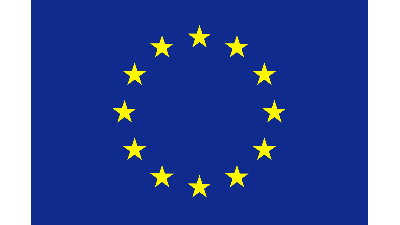EU To Collaborate With Nigeria’s Private Sector To Boost Digital Economy

EU To Collaborate With Nigeria’s Private Sector To Boost Digital Economy
• Give assistance to the 90,000km national fibre-optic expansion
• Boost digital public services
• Upskilling of the ICT workforce
The European Union (EU), has begun critical discussions with the private sector with a view to forge collaborations that would help ramp up investments to strengthen Nigeria’s digital economy ecosystem.
The EU in line with the Global Gateway Strategy, is running EU-Nigeria Digital Economy Package, which aims to support Nigeria’ digital transition and support the ambition of making Nigeria a regional digital hub.
Key initiatives of the package includes; the support to the 90,000 km national fibre-optic expansion, improvement of digital public services, and upskilling of the ICT workforce through programs like the 3 Million Technical Talents (3MTT).
At the breakfast meeting with the private sector, Head of Cooperation at the EU Delegation to Nigeria and ECOWAS, Massimo De Luca, disclosed that the EU was trying to attract the support of the private sector, specifically to the digital infrastructure component, and to boost public-private partnership framework in Nigeria.
According to him, it would allow the private sector to engage in large-scale projects, such as the 90,000km expansion with the support of the EU, who will provide guarantees and de-risking financial mechanism.
He said: “Digital public services and digital entrepreneurship could also represent a good opportunity for the private sector, as there are many procurement systems that would allow the both the EU and Nigeria private sector to be part of this journey in digital.”
In respect of digital infrastructure investment, De Luca said the European Investment Bank (EIB) has so far.nvested €100 million to expand secure 4G connectivity in Lagos and Ogun states.
According to him, the EU was also providing technical support to the rollout of the 90,000 km of fibre-optic cable infrastructure across Nigeria and aims to scale up its support to the Special Purpose Vehicle of the project, bringing connectivity to both urban and rural areas, as stated in the Nigeria’ Broadland Strategy.
“It also leads to improvement of the government interface with citizens and businesses, respecting high standards of privacy, safety and cybersecurity, while promoting an open internet and digital market. This creates opportunities for trusted vendors.”
With regards to the digitalisation of public services, as a first step, the EIB would support the National Identity Management Commission (NIMC) with a €250 million loan to strengthen Nigeria’s digital identity infrastructure with the highest data protection standards.
The EU is also providing technical support to the digitialisation of the Office of the Vice-President and discussing key areas of support with the Federal Ministry of Communications, Innovation, and Digital Economy (FMCIDE) to allow start-ups and Micro, Small, and Medium-sized Enterprises (MSMEs) to better enrol in business’ registration.
“With support for the skills necessary for businesses and citizens to make the most of the digital transformation, there would be more technical talent to be channelled to the Nigerian economy.”
The EU is also supporting the creation and scaling up of tech start-ups and boosting of innovative solutions for Nigeria’s society and economy; supporting young graduates, MSMEs and start-ups.
To this end, the EU and Germany co-fund the Digital Transformation Centre (DTC) implemented by GIZ, promoting innovation-friendly ecosystems and new digital solutions. The EU is also funding the Nigerian Jubilee Fellowship Programme, which aims to train and deploy youths skilled with ICT onto the labour market and support the 3MTT initiative.
De Luca further explained that the EU supports the development of the skills for the emerging digital economy, with a focus on youth and women.
“This is partially achieved by the €9.5 million grant to DTC project and partially, through a €45 million grant to the NJFP, providing on-the-job training for young Nigerians and channelling talent to Nigerian and EU companies across Nigeria.”
Speaking on the support that EU and Germany are providing to DTC Nigeria, Head of Project, GIZ- DTC Nigeria, Thuweba Diwani, said the initiative aims at creating an interface between the Nigerian private sector actors in the digital economy and the EU’s private sector actors.
“The EU supports development of regulatory frameworks with the highest standards of privacy, safety and cybersecurity, while promoting an open internet and digital market that upholds citizens’ rights. In particular, support was provided for the adoption of the Data Protection Law and to the Data Protection Commission, bringing the Nigerian standards closer to that of the EU and improving the enforcement capacity,” he said.
